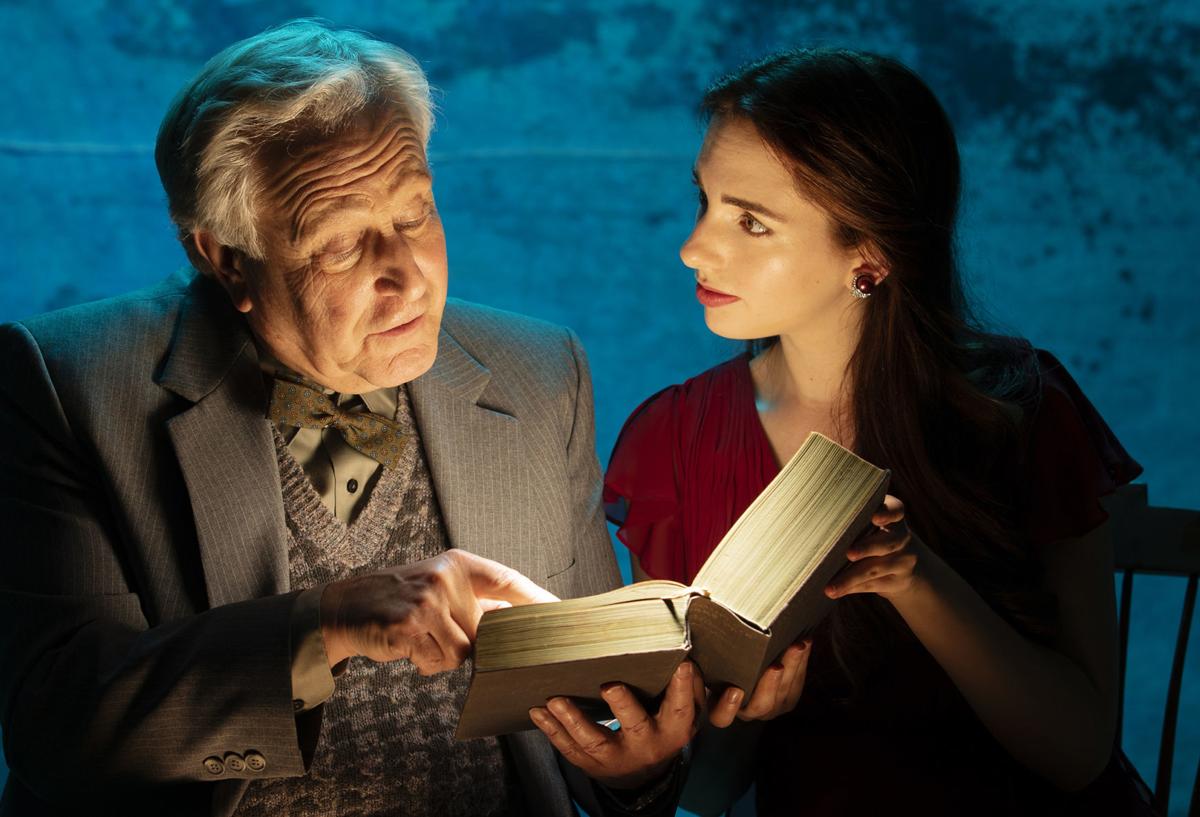Loss. Deep, gut-wrenching loss permeates Sarah Ruhl’s “Eurydice.”
So do poetry, love and, especially, memories, both the pain and joy of them.
The tragi-comedy is given a magical production by Scoundrel & Scamp Theatre.
Director Claire Marie Mannle must have a special affinity for this play — her direction makes the slightly surrealistic story clear, packing it with the rhythm and wonder that often creep into Ruhl’s works.
The story is an adaptation of the myth about the music-loving Orpheus, who loses his bride, Eurydice, and is so despondent, so consumed with sorrow, that he follows her to the underworld and convinces Hades to let him bring her back to the land of the living. Hades agrees with one condition: She will follow behind him, but if he looks back before they both have left the underworld, she’d be gone forever.
In the Greek myth, when he sees the sun he looks back to share his joy with her, but she has not yet crossed the line. She’s gone.
In Ruhl’s version, Orpheus looks back, but for entirely different reasons.
And the playwright fashions a story about Eurydice in the underworld.
Eurydice is lured from her wedding party by a character dubbed “A Nasty Interesting Man” with a promise that he has a letter to her from her dead father. Fleeing him, she tumbles out of a high rise to her death.
In the underworld, she can’t speak the language, can’t remember anything, and is greeted by a trio of “Stones” — dead souls who have taken it on themselves to make sure rules are followed. “Don’t cry! Don’t cry” they insist when her tears begin to flow.
But Eurydice soon meets up with her long-dead and much-missed father. He is one of the few in the underworld who has managed to retain his memories, and to read and write.
She doesn’t remember him, but his prompts help her recover memories. He teaches her how to read again, comforts her, even fashions a room for her out of thread because she insists she have one.
She longs for Orpheus but basks in the joy of once again having conversations with her father. So when her husband returns, she is tortured with whether she should go back with him to the land of the living.
Water is a constant here: the ocean that the young couple swim in as their love deepens, Eurydice’s great gulps of it from a fountain during her wedding party, the rain falling in the elevator that delivers her to the underworld, the lake that is designed to remove all memory from the souls who have passed.
Carl Jung tells us that water is the unconscious, and that concept rings throughout the play.
The production values in this Scoundrel & Scamp version are most impressive, from the multilevel scenic design by Jason Jamerson, to the stunning sound design by Tyler Berg, and the effective lighting design by Josh Hemmo.
But it is the cast that ultimately brings this to vivid life. Kathleen Cannon’s Eurydice is willful, smart and transparent with her feelings. Adam Denoyer’s Orpheus is a preoccupied-with-music young man whose passion for Eurydice is palpable, as is his pain when he loses her.
The Greek chorus of the Stones, Gretchen Wirges, Leah Taylor and Julia Balestracci, provided much of the humor while it clued us in on facts about the underworld.
Ryuto Adams as the Interesting Man and Hades was creepy and effective, and Bill Epstein as her father exuded warmth.
Mannle has created a sort of ballet that moves beautifully with Ruhl’s poetic language.
This is a production that is sad and joyous — just as memories can be. It should be seen.





